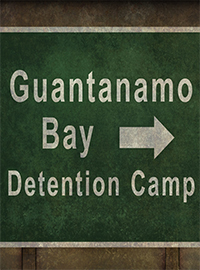| Adios, Guantanamo |
 |
|
By Betsy McCaughey
Wednesday, March 09 2016 |
President Obama is heading to Cuba in two weeks, eager to unveil more travel and trade concessions to the country's Communist regime. But is he too eager to befriend Fidel and Raul Castro, no matter the price? Members of Congress fear the president will cave to Cuba's demand to hand over the U.S. Naval Base at Guantanamo Bay. Chairman of the House Foreign Affairs Committee, Ed Royce, introduced a bill on Thursday to bar such a giveaway. Of course, Royce's bill is likely to face a presidential veto. As a practical matter, the surest way to prevent the president from surrendering Guantanamo is to keep its military detention facility loaded with prisoners. The president can't relinquish it until it's empty. The U.S. has controlled the 45-square-mile property at the southeastern end of Cuba for over a century. When the Castro brothers seized power in 1959, they demanded Guantanamo back. They failed then, but they're trying again, exploiting the fact that the U.S. now has a president inclined to placate America's foes. When Obama initiated a diplomatic thaw with Cuba's Communist regime, Raul Castro said surrendering the base had to come before "normalizing relations." Threats like that tend to make Obama go wobbly. This standoff could turn into a repeat of his disastrous Iran nuke deal. Already, we're hearing mixed signals from the administration on Guantanamo. Defense Secretary Ashton Carter says that "it's a strategic location" and "we intend to hold onto it." But last summer, Secretary of State John Kerry said, "we understand Cuba has strong feelings about" getting Guantanamo back and "I can't tell you what the future will bring." Yikes. The president needs to re-examine his naïve approach to Cuba's Communist regime. Senator Robert Menendez, D. N.J., a son of Cuban immigrants, worries the president is being duped. The Castros are responding to Obama's concessions by cracking down on political dissidents. In January alone, the regime threw 1,414 more dissidents into jail. So why is Obama is about to hand the Castros an enormous PR coup: an official visit by a serving president of the United States — the first in nearly 90 years? The Castros have made it clear they want American surrender of Guantanamo on the visit's agenda. Ben Rhodes, Obama's deputy national security advisor, said he's "sure that will be part of the discussion." Does the president have the authority to cede Guantanamo? This military installation is two-thirds the size of Washington, D.C. It overlooks one of the hemisphere's most trafficked sea-lanes and connects the East Coast to Central and South America. General John Kelly, who is in charge of the Southern Command, calls Guantanamo "indispensable to the Departments of Defense, Homeland Security, and State." Despite the installation's importance, constitutional law is murky on whether Obama can give it away without Congress's approval. The U.S. leases Guantanamo Bay through a treaty signed with Cuba long before the Castros came to power. Entering into a treaty requires the advice and consent of the Senate. But ending a treaty is a different story. The Constitution says nothing about it. Many presidents have pulled out of treaties without consulting Congress. On the other hand, it's clear the treaty allows the United States to "abandon" Guantanamo if it chooses. One hitch: The U.S. can't walk away while there are prisoners there. Congress has hobbled Obama's ability to move any more Guantanamo prisoners to foreign countries (slipping that restriction into a defense spending bill). That leaves one option: moving these dangerous terrorists to U.S. soil by executive order. Even the liberal Washington Post warned that "such a move would ignore the repeatedly expressed will of Congress." But knowing Obama's fondness for appeasing America's foes and his loathing of symbols of U.S. global power, it's still possible he'll pull a fast one and return from Cuba humming "Adios, Guantanamo." ---------------------------------------------------------------------------------------------------------------------------------------- Betsy McCaughey is a senior fellow at the London Center for Policy Research and author of "Government by Choice: Inventing the United States Constitution." |
Related Articles : |
























